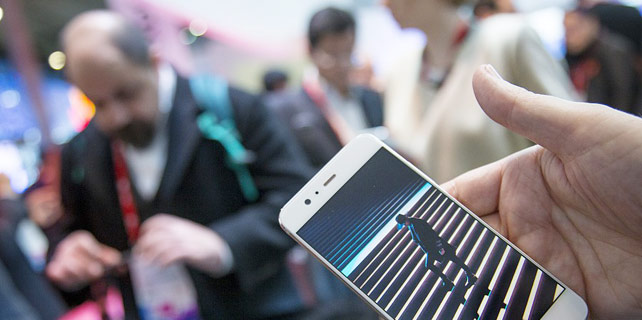Taxify vows to challenge Uber's dominance
Taxify, the new ride-hailing service which has launched across London, will offer more competition and better deals for passengers and drivers, according to the company.
Estonia-based Taxify, which recently partnered with Chinese transportation platform Didi Chuxing, has 3,000 drivers operating in the British capital.
The app service, which started on Tuesday, is offering Londoners 50 percent off rides in September.
Passengers are able to hail the city's iconic black cabs on several mobile apps, though until now Uber has been the only major ride-hailing service for private vehicles in the city.
"We always target countries that have a monopoly app without the best conditions for drivers and passengers," Taxify chief executive Markus Villig said."There really has been a lack of competition and we're here to solve that."
The app, which is available on iOS and Android, is similar to Uber as passengers are able to order a cab to their location. But unlike Uber, passengers can also pay by cash.
Villig said Taxify charges less than Uber from customers and pays more to its drivers.
Even when the September promotion has ended, he estimates Taxify will be 10 percent cheaper than Uber for customers and will take a 15 percent commission from its drivers.
"Uber, for example, takes 25 to 35 percent on some rides, so that gives us a lot of room to undercut them," he said.
Taxify has so far expanded to 19 countries in Europe and Africa since launching in 2013.
"Uber has not been seriously challenged in the UK,'' said Chris Jones, chief analyst at technology market analysis company Canalys. "Customers will love the reduced fares that will come from Taxify's launch and the inevitable price war."
Jones said to succeed in London, Taxify will have to "spend big on marketing and it must attract enough drivers quickly to compete with Uber on the time it takes for the car to arrive".
Taxify's partnership with Didi, which invested an undisclosed amount in Taxify last month, has greatly strengthened the company, Villig said. Uber sold its China operations to Didi in 2016.
"Didi shares our belief that a local champion will always be able to build a better product than one US company can build globally," he said.
Since 2015, the Beijing-based company has agreed deals with India's Ola, Lyft and Avis in the US, 99 in Latin America, Grab in Southeast Asia, Careem in the Middle East, and now Taxify in Europe and Africa.
"Didi is massively ambitious," Jones said. "The timing of its global expansion and foreign investments while Uber struggles, is not a coincidence."









